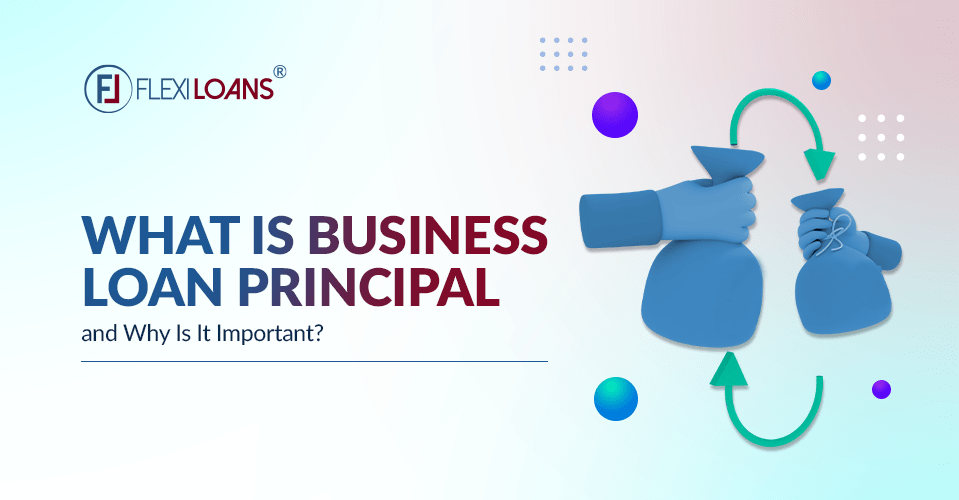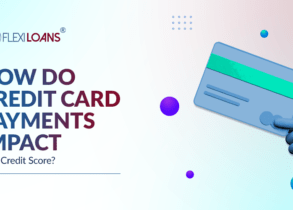Oct 13, 2022

You’re always looking for ways to grow your business as a business owner, aren’t you? One way to do this is to obtain a loan. Business loans are a popular financing option for small businesses. While the terms and conditions of these loans vary, one key element is always present: the loan principal. This article will explore the loan principal and why it is essential to understand it before taking out a business loan.
What Is a Business Loan Principal?
Regarding business loans, the term “principal” refers to the original amount of money borrowed from a lender. The principal is different from the interest, which is the fee charged by the lender for lending the money.
The principal is also different from collateral, which is something of value that a borrower pledges to a lender as security for a loan. If the borrower defaults on the loan, the lender can seize and sell the collateral to repay the loan.
Why Is Business Loan Principal Important?
The principal amount of your loan is essential for two key reasons. First, it determines the size of your loan repayments. The larger the principal, the higher your monthly repayments will be. This is because you will be responsible for repaying the entire loan, plus any interest and fees, over the life of the loan.
Second, the principal amount also affects the total cost of your loan. The higher the principal, the more interest you will pay over the life of the loan. This is because interest is calculated as a percentage of the outstanding principal balance. As you make repayments and reduce the outstanding balance, you will also reduce the monthly interest you pay.
How Does Business Loan Principal Work?
Now, take a look at how the business loan principal works. When you take out a loan, you borrow money from the lender. The lender will charge you interest on the loan, which is the amount of money you pay back in addition to the principal. The interest rate is the percentage of the loan you pay back in interest.
For example, you take a loan of Rs.10,000 with an interest rate of 5%. This means you will owe Rs. 10,500 back to the lender—Rs. 10,000 for the principal and Rs. 500 in interest.
It is important to remember that the business loan interest rate is not the only factor that will affect your monthly payments. The term of the loan also plays a role in the interest. The longer the term, the lower your monthly payments will be, but the more interest you will pay in the long run.
What are the Types of Business Loans?
Many different types of business loans or working capital loans are available, each with its own terms and conditions.
The most common type of business loan is a term loan. This loan is repaid over a fixed period, typically in equal monthly installments. The length of the repayment period will vary depending on the lender but is typically between one and five years.
Another common type of business loan is a line of credit. This is a revolving loan that can be used for short-term funding needs.
What are the Terms of a Business Loan?
The terms of a business loan will vary depending on the type of loan and the lender. However, some common terms are typically associated with business loans.
The interest rate is the cost of borrowing money and is expressed as a percentage of the loan principal. Interest rates will vary depending on the type of loan, the lender, and your creditworthiness.
The repayment period is the length of time that you have to repay the loan, which will vary depending on the type of loan but is typically between one and five years.
The grace period is when you receive the loan and before the actual repayments begin. The grace period will vary depending on the lender but is typically six months to one year.
You may be charged several fees when taking out a business loan. These include origination fees, closing costs, and late payment fees.
How do you Qualify for a Business Loan?
To qualify for a business loan, you will typically need to have good credit and a strong business plan. You will also need to provide collateral, which is property or assets that can be used to secure the loan. Collateral can include your home, your business equipment, or your accounts receivable.
What are the Steps to Getting a Business Loan?
The steps to getting a business loan vary depending on the lender, but there are some common steps that you will usually need to follow:
1) Research different lenders and compare their terms and conditions.
2) Choose the lender that best meets your needs.
3) Submit your loan application and supporting documents.
4) Wait for the lender to approve or deny your loan.
5) If your loan is approved, sign the loan agreement and receive the funds.
6) Repay the loan according to the terms of the agreement.
How is the Loan Principal Paid Back?
The loan principal is paid back over the life of the loan along with the interest. The repayment schedule will specify how much of each payment goes toward the principal and how much goes toward the interest.
In the early years of a loan, most of the payment goes towards paying the interest. This is because the loan balance is larger and there is more interest to pay. As the loan balance decreases, more of the payment goes towards paying the principal.
By the end of the loan, the entire payment is applied to the principal. This is because there is no remaining balance to accrue interest on.
What Happens if you do not Pay your Loan Principal?
If you do not pay your Financing Loans principal, you will default on your loan. This means that you have breached your loan agreement and the lender can take legal action against you.
Defaulting on a loan can have serious consequences. It will damage your credit score and make it difficult for future loan approvals.
How can you Pay Off your Loan Principal Early?
You can pay off your loan principal early by making larger payments or by refinancing your loan. When you make a larger payment, more of the payment will go towards the principal and less will go towards the interest.
If you refinance your loan, you will get a new loan with a lower interest rate. This will decrease the amount of interest you pay over the life of the loan and allow you to pay off the principal faster.
Paying off your loan principal early can save you money in interest charges and help you become debt-free sooner.
Key Takeaways
Taking out a business loan can be a great way to finance your business. However, it is important to understand the different types of loans available and the terms and conditions associated with them. It is also important to compare different lenders to find the one that best meets your needs.







